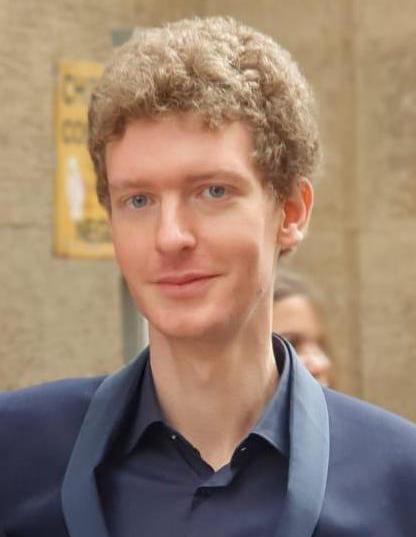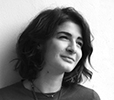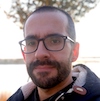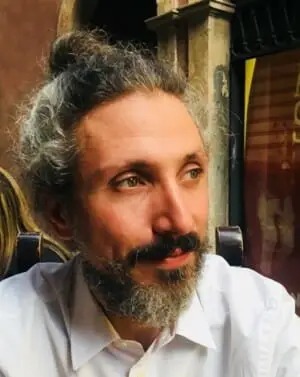Studying at the University of Verona
Here you can find information on the organisational aspects of the Programme, lecture timetables, learning activities and useful contact details for your time at the University, from enrolment to graduation.
Academic calendar
The academic calendar shows the deadlines and scheduled events that are relevant to students, teaching and technical-administrative staff of the University. Public holidays and University closures are also indicated. The academic year normally begins on 1 October each year and ends on 30 September of the following year.
Course calendar
The Academic Calendar sets out the degree programme lecture and exam timetables, as well as the relevant university closure dates..
| Period | From | To |
|---|---|---|
| Sem. 1A | Sep 21, 2020 | Oct 31, 2020 |
| Sem. 1B | Nov 9, 2020 | Jan 9, 2021 |
| Sem. 2A | Feb 15, 2021 | Apr 1, 2021 |
| Sem. 2B | Apr 14, 2021 | May 29, 2021 |
| Session | From | To |
|---|---|---|
| Sessione d'esame invernale | Jan 14, 2021 | Feb 13, 2021 |
| Sessione d'esame estiva | Jun 7, 2021 | Jul 24, 2021 |
| Sessione d'esame autunnale | Aug 23, 2021 | Sep 18, 2021 |
| Session | From | To |
|---|---|---|
| Sessione di laurea estiva | Jul 5, 2021 | Jul 10, 2021 |
| Sessione di laurea autunnale | Nov 8, 2021 | Nov 13, 2021 |
| Sessione di laurea invernale | Mar 28, 2022 | Apr 1, 2022 |
| Period | From | To |
|---|---|---|
| Festa di Ognissanti | Nov 1, 2020 | Nov 1, 2020 |
| Festa dell'Immacolata | Dec 8, 2020 | Dec 8, 2020 |
| Vacanze di Natale | Dec 24, 2020 | Jan 6, 2021 |
| Vacanze di Pasqua | Apr 2, 2021 | Apr 6, 2021 |
| Festa della liberazione | Apr 25, 2021 | Apr 25, 2021 |
| Festa del lavoro | May 1, 2021 | May 1, 2021 |
| Festa del Santo Patrono | May 21, 2021 | May 21, 2021 |
| Festa della Repubblica | Jun 2, 2021 | Jun 2, 2021 |
| Vacanze estive | Aug 9, 2021 | Aug 15, 2021 |
Exam calendar
Exam dates and rounds are managed by the relevant Humanistic Studies Teaching and Student Services Unit.
To view all the exam sessions available, please use the Exam dashboard on ESSE3.
If you forgot your login details or have problems logging in, please contact the relevant IT HelpDesk, or check the login details recovery web page.
Should you have any doubts or questions, please check the Enrollment FAQs
Academic staff
 francesco.bianchi@univr.it
francesco.bianchi@univr.it
 evita.calabrese@univr.it
evita.calabrese@univr.it
 andrea.cavalletti@univr.it
andrea.cavalletti@univr.it
 elena.desilvestri@univr.it
elena.desilvestri@univr.it

Mastrocinque Attilio
 attilio.mastrocinque@univr.it
attilio.mastrocinque@univr.it
 +39 045802 8386
+39 045802 8386
 stefania.pontrandolfo@univr.it
stefania.pontrandolfo@univr.it
 pieralberto.porcedducilione@univr.it; pierre_pordd@yahoo.it
pieralberto.porcedducilione@univr.it; pierre_pordd@yahoo.it
 045 8028732
045 8028732
 nicola.turrini@univr.it
nicola.turrini@univr.it
 mariarenata.zanchin@univr.it
mariarenata.zanchin@univr.it
Study Plan
The Study Plan includes all modules, teaching and learning activities that each student will need to undertake during their time at the University.
Please select your Study Plan based on your enrollment year.
1° Year
| Modules | Credits | TAF | SSD |
|---|
2° Year activated in the A.Y. 2021/2022
| Modules | Credits | TAF | SSD |
|---|
3° Year activated in the A.Y. 2022/2023
| Modules | Credits | TAF | SSD |
|---|
| Modules | Credits | TAF | SSD |
|---|
| Modules | Credits | TAF | SSD |
|---|
| Modules | Credits | TAF | SSD |
|---|
| Modules | Credits | TAF | SSD |
|---|
Legend | Type of training activity (TTA)
TAF (Type of Educational Activity) All courses and activities are classified into different types of educational activities, indicated by a letter.
Philosophy of History (2022/2023)
Teaching code
4S007321
Teacher
Coordinator
Credits
6
Language
Italian
Scientific Disciplinary Sector (SSD)
M-FIL/03 - MORAL PHILOSOPHY
Period
Sem. 2B dal Apr 11, 2023 al May 27, 2023.
Learning objectives
Philosophy of History
The course aims to offer students the conceptual tools to understand the teaching of philosophy of history in relation to the questions posed by contemporary times. Students will acquire the knowledge of the Western reflection, as well as the following capabilities: ability to understand philosophical texts, to set them within a correct historical-critical perspective, to interpret them, to use an appropriate philosophical terminology, to autonomously form judgements on the subjects dealt with in the course, to communicate philosophical topics with specialists and non-specialists, and to continue their studies at a MA level.
Program
Il corso metterà a confronto l’archeologia foucaultiana e la psicoanalisi lacaniana attorno ai diversi modi di intendere i processi di soggettivazione, in rapporto al sapere e al potere.
La prima parte del corso sarà dedicata a una ripresa della dinamica di soggettivazione descritta da Hegel nella "Fenomenologia dello spirito", con particolare attenzione al rapporto al sapere nella costituzione della soggettività. La parte centrale del corso interrogherà invece la riflessione foucaultiana sui processi di assoggettamento e la posizione che la psicoanalisi verrebbe a occupare all’interno della storia della sessualità.
L’ultima parte entrerà più nel vivo dell’esperienza analitica, evidenziando l’irriducibilità della sua prassi, dell’inconscio che la orienta e del desiderio che la sostiene, alle figure del soggetto che abbiamo ereditato. Riprendendo la critica di Derrida a Foucault nel suo "Essere giusti con Freud", si interrogherà il tipo di sapere che emerge dall’esperienza analitica in rapporto al godimento (Lacan, "Seminario XVI").
Bibliography
Didactic methods
The lessons will alternate traditional frontal teaching with dialogical interaction with students, guided discussions, as well as reading and commenting texts collectively.
The traditional frontal lessons (first part of each lesson) will be videotaped and uploaded to the Moodle platform. The moments of interaction and discussion with the students will take place in the classroom and will not be videotaped.
Any change of the timetable will be communicated on the teacher's web page.
Learning assessment procedures
Exam’s modality:
The exam will be oral and will assess the level of competency of the themes and fundamental concepts addressed during the course. The questions will aim to highlight the students' critical-argumentative capacity, their ability to use texts autonomously, as well as the communication skills necessary to give back with rigor and sufficient subjectivation the problems faced in class and in the books present in the bibliography.
The vote is expressed in thirtieths.
The examination procedures are the same for students attending and not attending.
Exam language
Italiano
Type D and Type F activities
Modules not yet included
Career prospects
Module/Programme news
News for students
There you will find information, resources and services useful during your time at the University (Student’s exam record, your study plan on ESSE3, Distance Learning courses, university email account, office forms, administrative procedures, etc.). You can log into MyUnivr with your GIA login details: only in this way will you be able to receive notification of all the notices from your teachers and your secretariat via email and soon also via the Univr app.
Student mentoring
Linguistic training CLA
Gestione carriere
Practical information for students
Documents
| Title | Info File |
|---|---|
|
|
pdf, it, 325 KB, 02/05/23 |
|
|
pdf, it, 212 KB, 02/05/23 |
|
|
pdf, it, 131 KB, 02/05/23 |
Graduation
Documents
| Title | Info File |
|---|---|
|
|
pdf, it, 99 KB, 13/10/23 |
|
|
pdf, it, 101 KB, 10/04/24 |











































